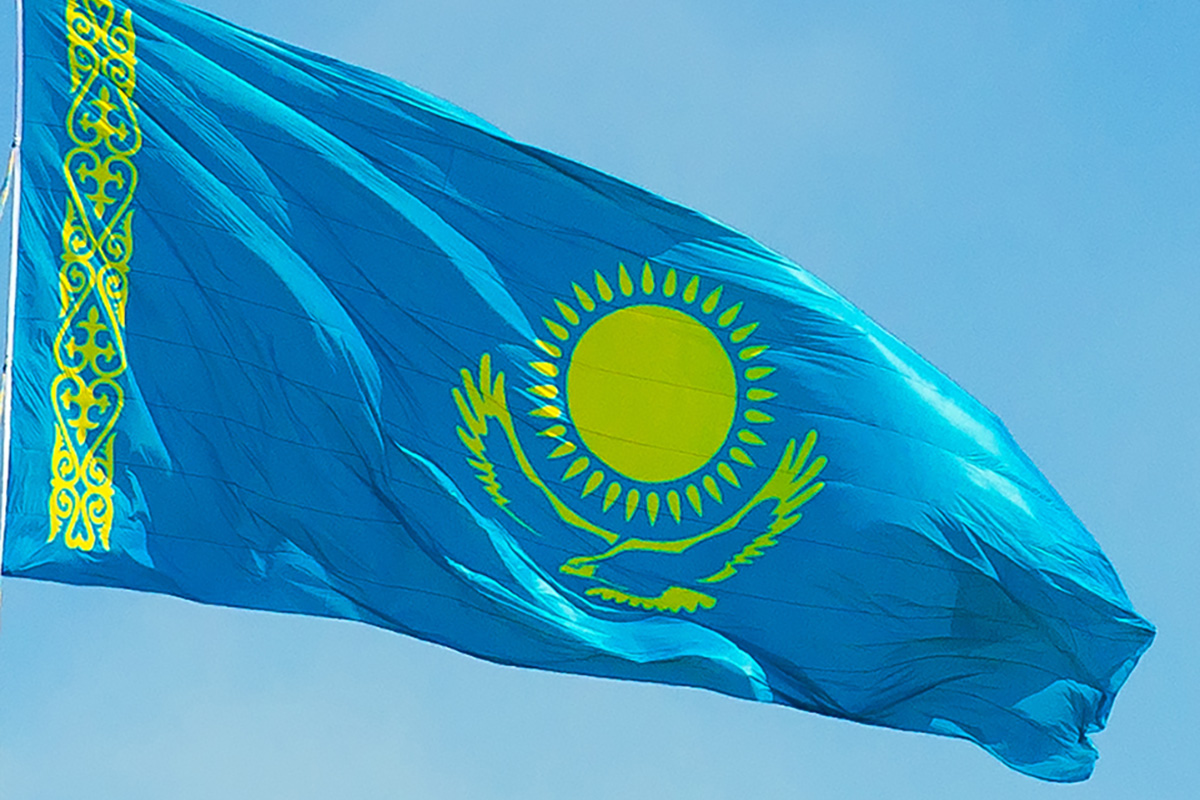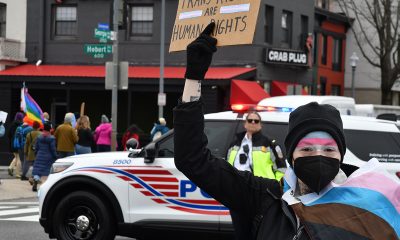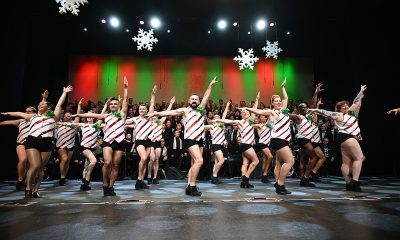News
Jamaican LGBT advocates condemn murder of cross-dressing teenager
17-year-old reportedly stabbed to death during party near Montego Bay
Jamaican LGBT rights advocates have expressed outrage over the reported murder of a cross-dressing teenager near the resort city of Montego Bay.
The radio station Irie FM reported the 17-year-old was dancing with a man at a party on July 21 while dressed as a woman when someone realized the teen was cross-dressing. A second man reportedly discovered the teenager was actually male.
Irie FM said a group of party-goers stabbed the 17-year-old to death either late on July 21 or early Monday morning before dumping the teen’s body in bushes on the side of a road.
The Jamaica-Gleaner reported earlier today that police officers found the teen, whom they identified as Dwayne Jones, with what it described as “multiple stab wounds and a gunshot wound.”
“We send our sincere condolences to the family and friends of the teenager who was slain,” the Jamaica Forum for Lesbians All-Sexuals and Gays (J-FLAG,) a Jamaican LGBT rights group, said in a statement it issued on Tuesday. “We call for a thorough investigation into the murder of the teenager in Montego Bay and hope that the family and loved ones of the slained teen will find the justice they deserve.”
Jones’ murder comes against the backdrop of pervasive anti-LGBT violence in the Caribbean nation.
A J-FLAG report said the organization knows of at least 30 gay men who have been murdered in Jamaica between 1997 and 2004.
A man stabbed J-FLAG co-founder Brian Williamson to death inside his home in Kingston, the country’s capital in 2004. Former J-FLAG executive director Gareth Henry sought asylum in Canada in 2008 after he received death threats.
Authorities found honorary British consul John Terry strangled to death inside his home near Montego Bay in 2009. They found a note left next to his body that referred to him as “batty boy,” a derogatory term used against gay men in Jamaica.
Maurice Tomlinson, a Jamaican lawyer with the group AIDS-Free World who fled his homeland in 2012 after he received death threats after local media reported he had married a Canadian man, told the Washington Blade from his home in upstate New York that there have been nine reported anti-gay murders on the island so far this year. He added there has been a 400 percent increase in the number of reported attacks against LGBT Jamaicans since 2009.
Tomlinson said this spike in the number of reported incidents could be the result of the work advocates have done to document human rights abuses against LGBT Jamaicans.
The Jamaica Supreme Court last month heard a lawsuit that challenges the island’s anti-sodomy law under which those who are convicted face up to 10 years in prison with hard labor.
“The rhetoric is getting much more toxic,” Tomlinson said, noting brutal attacks against gay Jamaicans has become more common. He said they are no longer confined to just Kingston and a handful of other areas. “We’re not sure if the increase in attacks is a function of that or the reporting.”
The State Department, Amnesty International and other groups have criticized the Jamaican government for not doing enough to curb anti-LGBT violence in the country.
AIDS-Free world has challenged Jamaica’s anti-sodomy law before the Inter-American Commission on Human Rights in D.C. It has also asked the group that is housed within the Organization for American States to formally respond to the ongoing persecution that homeless men who have sex with men and other vulnerable groups of gay Jamaicans face.
Tomlinson’s group also plans to ask the United Nations High Commissioner for Human Rights to formally condemn discrimination and violence against LGBT Jamaicans.
The Organization of American States, of which Jamaica is a member, last month adopted an anti-discrimination resolution that includes sexual orientation and gender identity and expression during its annual meeting that took place in Guatemala. Jamaica declined to accept the protocol’s LGBT-specific recommendations.
Tomlinson, who appeared on the National Public Radio program “Tell Me More” with Michel Martin on Monday to discuss the documentary “The Abominable Crime” that examines anti-LGBT violence in Jamaica, told the Blade the government has been “absolutely silent” on the issue.
Former J-FLAG staffer Nico Tyndale’s cousin was murdered in Jamaica earlier this year because his assailants thought he was gay.
Tyndale told the Blade earlier on Tuesday that many people continue argue the country is not homophobic – and gay Jamaicans are actually “the ones killing ourselves.”
“We can’t even be who we are,” Tyndale said. “Being who we are only leads to a mob and a slaughter.”
The White House
HHS to restrict gender-affirming care for minors
Directive stems from President Donald Trump’s Jan. 28 executive order

The U.S. Department of Health and Human Services announced Thursday that it will pursue regulatory changes that would make gender-affirming healthcare for transgender children more difficult, if not impossible, to access.
The shift in federal healthcare policy stems directly from President Donald Trump’s Jan. 28 executive order, Protecting Children From Chemical and Surgical Mutilation, which formally establishes U.S. opposition to gender-affirming care and pledges to end federal funding for such treatments.
The executive order outlines a broader effort to align HHS with the Trump–Vance administration’s policy goals and executive actions. Those actions include defunding medical institutions that provide gender-affirming care to minors by restricting federal research and education grants, withdrawing the 2022 HHS guidance supporting gender-affirming care, requiring TRICARE and federal employee health plans to exclude coverage for gender-affirming treatments for minors, and directing the Justice Department to prioritize investigations and enforcement related to such care.
HHS has claimed that gender-affirming care can “expose them [children] to irreversible damage, including infertility, impaired sexual function, diminished bone density, altered brain development, and other irreversible physiological effects.” The nation’s health organization published a report in November, saying that evidence on pediatric gender-affirming care is “very uncertain.”
The Centers for Medicare and Medicaid Services is now in the process of proposing new rules that would bar hospitals from performing what the administration describes as sex-rejecting procedures on children under age 18 as a condition of participation in Medicare and Medicaid programs. Nearly all U.S. hospitals participate in Medicare and Medicaid. HHS said that “this action is designed to ensure that the U.S. government will not be in business with organizations that intentionally or unintentionally inflict permanent harm on children.”
Health and Human Services Secretary Robert F. Kennedy Jr. released a statement alongside the announcement.
“Under my leadership, and answering President Trump’s call to action, the federal government will do everything in its power to stop unsafe, irreversible practices that put our children at risk,” Kennedy said. “This administration will protect America’s most vulnerable. Our children deserve better — and we are delivering on that promise.”
Those claims stand in direct opposition to the positions of most major medical and healthcare organizations.
The American Medical Association, the nation’s largest and most influential physician organization, has repeatedly opposed measures that restrict access to trans healthcare.
“The AMA supports public and private health insurance coverage for treatment of gender dysphoria and opposes the denial of health insurance based on sexual orientation or gender identity,” a statement on the AMA’s website reads. “Improving access to gender-affirming care is an important means of improving health outcomes for the transgender population.”
Jennifer Levi, senior director of transgender and queer rights at GLBTQ Legal Advocates and Defenders, warned the proposed changes would cause significant harm.
“Parents of transgender children want what all parents want: to see their kids thrive and get the medical care they need. But this administration is putting the government between patients and their doctors. Parents witness every day how their children benefit from this care — care backed by decades of research and endorsed by major medical associations across the country. These proposed rules are not based on medical science. They are based on politics. And if allowed to take effect will serve only to drive up medical costs, harm vulnerable children, and deny families the care their doctors say they need. These rules elevate politics over children — and that is profoundly unAmerican.”
Human Rights Campaign President Kelley Robinson echoed Levi’s sentiments.
“The Trump administration is relentless in denying health care to this country, and especially the transgender community. Families deserve the freedom to go to the doctor and get the care that they need and to have agency over the health and wellbeing of their children,” Robinson said. “But these proposed actions would put Donald Trump and RFK Jr. in those doctor’s offices, ripping health care decisions from the hands of families and putting it in the grips of the anti-LGBTQ+ fringe. Make no mistake: these rules aim to completely cut off medically necessary care from children no matter where in this country they live. It’s the Trump administration dictating who gets their prescription filled and who has their next appointment canceled altogether.
The announcement comes just days after U.S. Rep. Marjorie Taylor Greene (R-Ga.) advanced legislation in Congress that would make it a felony to provide gender-affirming care to a child.
Kazakhstan
Kazakh Senate approves anti-LGBTQ propaganda bill
Measure ‘would undermine fundamental rights guaranteed under’ constitution

The Kazakh Senate on Thursday approved a bill that would ban so-called LGBTQ propaganda in the country.
Members of Kazakhstan’s lower house of parliament last month unanimously approved the measure that would ban “‘LGBT propaganda’ online or in the media” with “fines for violators and up to 10 days in jail for repeat offenders.” Senators earlier this month delayed a vote on the bill.
President Kassym-Jomart Tokayev has indicated he would sign it.
“If enacted, these provisions would undermine fundamental rights guaranteed under Kazakhstan’s Constitution, particularly the principle of equality and non-discrimination, by directly targeting and stigmatizing LGBTI people and anyone perceived to support them,” said ILGA-Europe in a statement after Thursday’s vote.
Kazakhstan is a predominantly Muslim former Soviet republic in Central Asia that borders Russia, Turkmenistan, Uzbekistan, Kyrgyzstan, and China. Russia, Georgia, and Hungary are among the other countries with anti-LGBTQ propaganda laws.
District of Columbia
Brian Footer suspends campaign for Ward 1 D.C. Council seat
Race’s third LGBTQ candidate cites family reasons for ‘stepping back’

Gay Advisory Neighborhood Commissioner Brian Footer, who was one of three out LGBTQ candidates running for the open Ward 1 D.C. Council seat in the city’s June 16, 2026, Democratic primary, announced on Dec. 17 he has decided to “suspend” his campaign to focus on his family.
“After deep reflection and honest conversations with my family, I have decided to suspend my campaign for the D.C. Council,” he said in a statement. “This moment in my life requires me to be present with the people I love most and honor the responsibilities I carry both at home and in the community,” he states. “This was not an easy decision, but it is the right one for me and my family at this time.”
Footer, a longtime Ward 1 community activist and LGBTQ rights advocate, announced his candidacy for the Ward 1 Council seat in July, one month before bisexual Ward 1 community activist Aparna Raj announced her candidacy for the Council seat on Aug. 12.
Gay Ward 1 Advisory Neighborhood Commissioner Miguel Trindade Deramo announced his candidacy for the Ward 1 Council seat on Nov. 18, becoming the third out LGBTQ candidate in what appeared to be an unprecedented development for a race for a single D.C. Council seat.
At least three other candidates who are not LGBTQ are running for the Ward 1 Council seat. They include Ward 1 ANC member Rashida Brown, longtime Ward 1 community activist Terry Lynch, and Jackie Reyes-Yanes, the former director of the Mayor’s Office of Community Affairs.
In his statement announcing the suspension of his candidacy, Footer said he would continue to be involved in community affairs and advocate for the issues he discussed during his campaign.
“I want to be clear: I am stepping back from the race, not the work,” he says in his statement. “Public service has always been my calling. I will continue advocating for affordability, for safer streets, for stability for small businesses, and for a government that responds to people with urgency and respect,” he wrote. “And I will continue showing up as a partner in the work of building a stronger Ward 1.”
Footer concluded by thanking and praising his campaign supporters and calling his campaign suspension a “transition,” suggesting he is not likely to resume his candidacy.
His campaign press spokesperson did not immediately respond to a question from the Washington Blade asking if Footer might later resume his campaign or if his latest action was in effect an end to his candidacy.
“To everyone who knocked on doors, hosted conversations, donated, shared encouragement, and believed in this campaign, thank you,” he says in his statement. “I am deeply grateful for every person who helped this campaign take root,” he added. “This isn’t an ending, it’s a transition. And I’m excited for the work ahead, both in Ward 1 and at home with my family.”
Longtime gay D.C. Democratic Party activist Peter Rosenstein said in a statement to the Blade, “I respect Brian Footer’s decision to end his campaign for Council. It is not easy to run a campaign in D.C. and there are many others running in Ward 1.” He added, “While not living in Ward 1, I thank Brian for all he has done and clearly will continue to do for the people in the ward.”




















